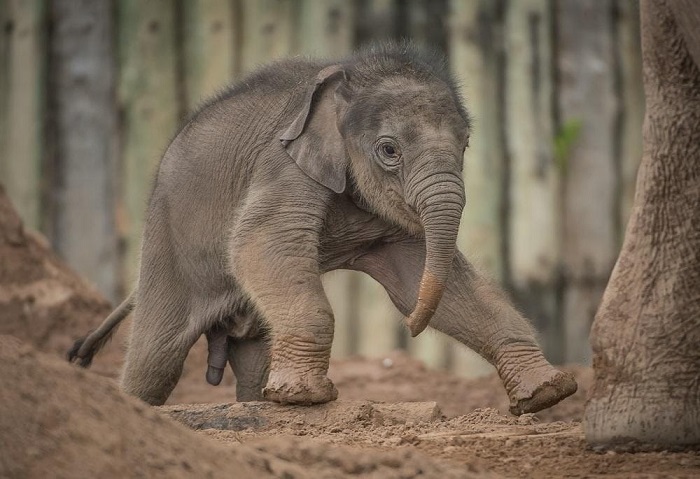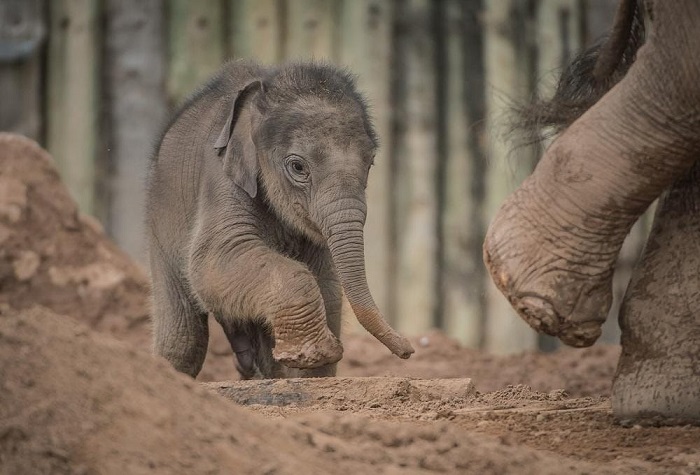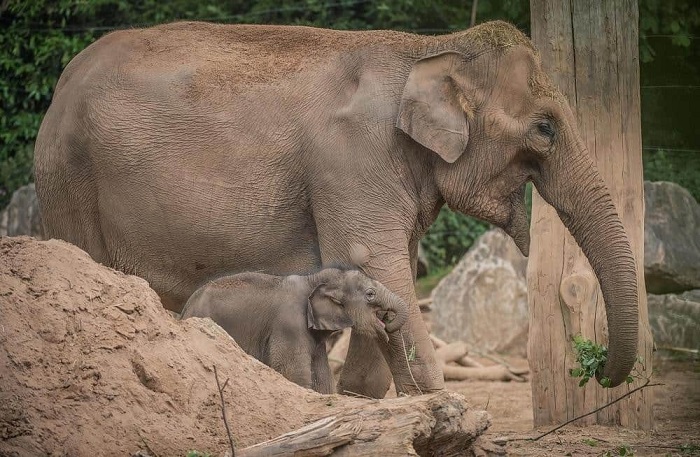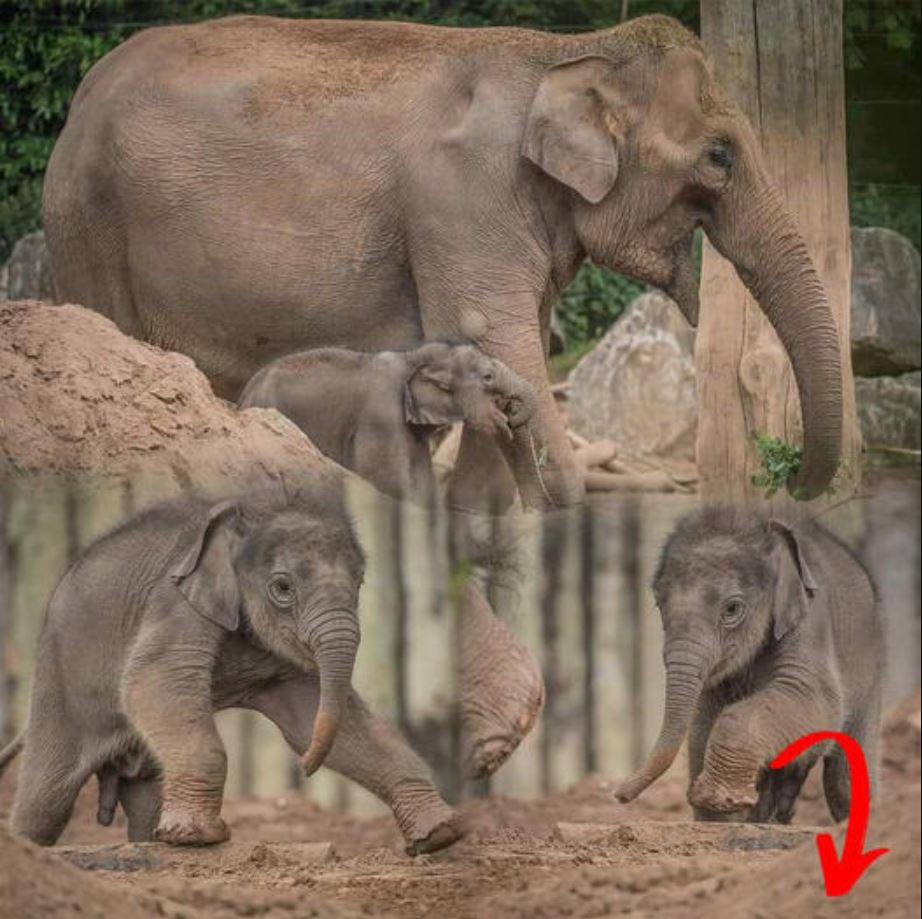Chester Zoo experienced an incredible event as an Asian elephant named Thi Hi Way gave birth to a healthy calf on Thursday, despite her nearly three months overdue pregnancy.
Thi, an experienced mother and the respected herd matriarch, welcomed her seventh calf at age 35 after a prolonged 25-month gestation period.
Initially, scientists believed that Thi had started a natural process called resorption, where the mother’s body reabsorbs the developing fetus, as hormone tracking indicated she was due to give birth three months earlier.

However, she defied expectations and proved that nature has its way of surprising us. Both mother and the yet-to-be-named baby boy are reported to be doing very well, much to the delight of the zookeepers.
Mike Jordan, Chester Zoo’s Collections Director, expressed his admiration for Thi, highlighting her importance as a matriarch and experienced mother.
He marveled at the extraordinary circumstances surrounding the birth and the joy it brought to witness the newborn calf bonding with the rest of the elephant family.
The birth of this healthy calf significantly contributes to the conservation efforts for Asian elephants, listed as endangered on the International Union for the Conservation of Nature’s Red List.

Chester Zoo plays a crucial role in a breeding program focused on preserving the elephant population in Europe. The unexpected arrival of the baby boy is a substantial boost to these conservation efforts.
Tim Rowlands, Curator of Mammals at the zoo, emphasized the importance of protecting Asian elephants due to their endangered status.
By combining successful breeding programs with conservation efforts in the wild, the zoo aims to make a difference in preserving these magnificent creatures.
Chester Zoo has been actively collaborating with conservationists in India for over twelve years. Their joint efforts aim to prevent extinction in the wild by leveraging the research and knowledge gained in Chester.

Additionally, the zoo’s project in Assam, northern India, has successfully mitigated conflicts between local communities and the nearby Asian elephant population, providing a promising model for future conservation initiatives.
Researchers at Chester Zoo are also diligently working on finding a cure for the deadly disease threatening Asian elephants, known as elephant endotheliotropic herpesvirus. Though there is no cure, scientists remain hopeful that a vaccine can be developed to safeguard the elephants’ health.
This remarkable event at Chester Zoo showcases the wonder of nature and the dedicated efforts to protect endangered species like Asian elephants.
It serves as a powerful reminder of the importance of conservation and the positive impact that can be achieved through collaboration and research.

